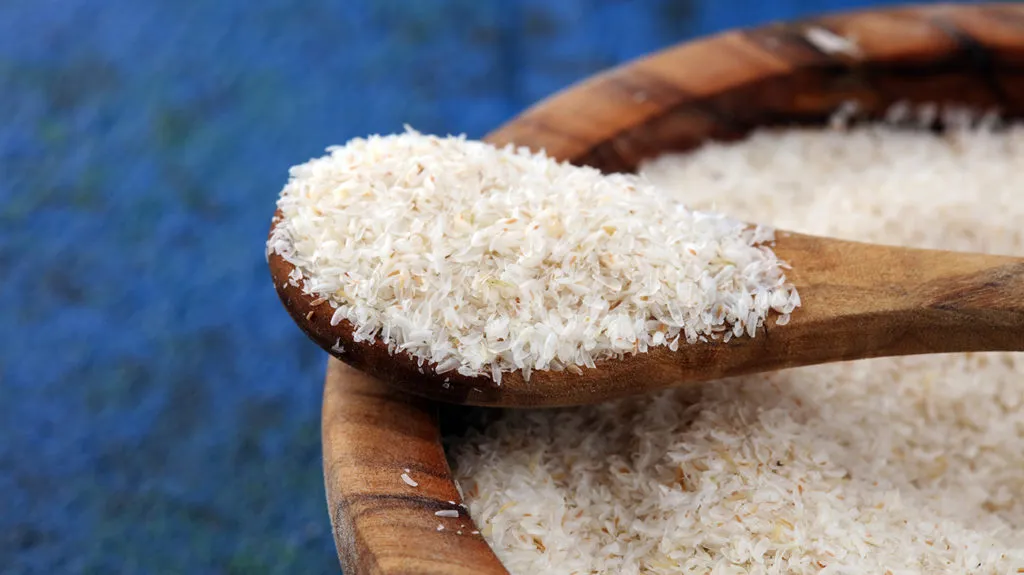What is Psyllium Husk? Top 4 Benefits of Psyllium Husk & Types of Psyllium Husk. Are you interested in learning more about Psyllium Husk? A type of soluble fiber produced by a plant called Plantago ovata, psyllium husk is an important ingredient in many foods. Supplements containing this substance are typically taken in the form of powders or capsules.
Introduction:
The psyllium husk is a plant-based dietary fiber that has gained a great deal of popularity due to its many health benefits as a natural, plant-based fiber. Ayurvedic medicine has used the husks of the Plantago ovata plant for centuries as a source of soluble fiber.
There are many benefits to adding psyllium husk to your diet, including natural laxatives, lowering cholesterol, improving digestive health, and weight management. It is easy to add to your diet, and many food products contain it.
You may want to add psyllium husk to your daily routine if you are looking for an effective and simple way to improve your overall health.
What is Psyllium Husk?
Plantago ovata is a shrub-like plant native to India that produces psyllium husk, a type of soluble fiber. It is often used to treat constipation, diarrhea, and other digestive issues naturally. A gel-like substance is formed when psyllium husk is mixed with water.
It can bulk up the stool and ease its passage through the intestines when combined with water.
The psyllium husk has been shown to lower cholesterol levels and may have other heart benefits, in addition to its digestive benefits. It can be consumed either as a powder or in capsule form.
Top 4 Benefits of Psyllium Husk:
Psyllium husk is thought to have several potential health benefits. Here are a few of the most noteworthy.
Weight loss:
Psyllium husk supplements may support weight loss efforts by reducing appetite, resulting in a reduction in calorie intake.
Digestive Health:
There is a common use of psyllium husk for treating constipation and diarrhea as a natural treatment. As a result, the stool becomes enlarged and more easily passes through the intestines, alleviating constipation. In addition to helping reduce diarrhea, it may also aid in absorbing excess water from the intestines.
Heart health:
There has been some research suggesting that taking psyllium husk supplements may be beneficial to heart health, as lowering cholesterol levels may reduce the risk of heart attacks and strokes.
Blood sugar control:
The psyllium husk has been shown to help improve blood sugar control in people with diabetes. It can help slow down the absorption of sugar into the bloodstream, helping to stabilize blood sugar levels.
Types of What is Psyllium Husk:
Several types of psyllium husk are available on the market, including the following:
Whole psyllium husk:
The psyllium husk used for this type of product is made from the entire husk of the plant and is typically ground into powder form or used to fill capsules.
Isolated psyllium husk:
Psyllium husk in this form is made from only the husk of the plant, without any other plant parts. It is usually more refined, and some people may find it easier to digest.
Psyllium husk flakes:
They can be added to foods or beverages as thin flakes that have been made from psyllium husk.
Psyllium husk capsule:
The psyllium husk capsule is a food supplement containing psyllium husk, a type of soluble fiber derived from the plant Plantago ovata. It is commonly found that powdered psyllium husk is encapsulated in capsules that can be taken orally. Capsules encapsulating psyllium husk powder are available for oral consumption.
FAQs
How do I take psyllium husk?
A powder or capsule form of psyllium husk is generally taken as a supplement to help the fiber dissolve and prevent digestive problems. It is recommended to take it with plenty of water. Follow the dosage instructions provided on the product packaging or as recommended by your healthcare provider if you are taking it.
Can psyllium husk be taken with other medications?
You should consult a healthcare provider if you are currently taking psyllium husk if you are taking any medications, including blood pressure medications, blood thinners, or oral medications.
Is psyllium husk safe for everyone to take?
The psyllium husk is generally considered safe for most people when taken as directed. However, some individuals may be sensitive to fiber and may experience digestive side effects from taking it. If you have any pre-existing health conditions or allergies, you should consult your healthcare provider before taking psyllium husk.
Conclusion:
Psyllium husk is a natural dietary fiber that has been used in traditional medicine for centuries. As it contains soluble fiber and mucilage, it protects your digestive system and reduces your risk of heart disease.
You should begin with a low dose and gradually increase it, and drink sufficient amounts of water while taking it.



